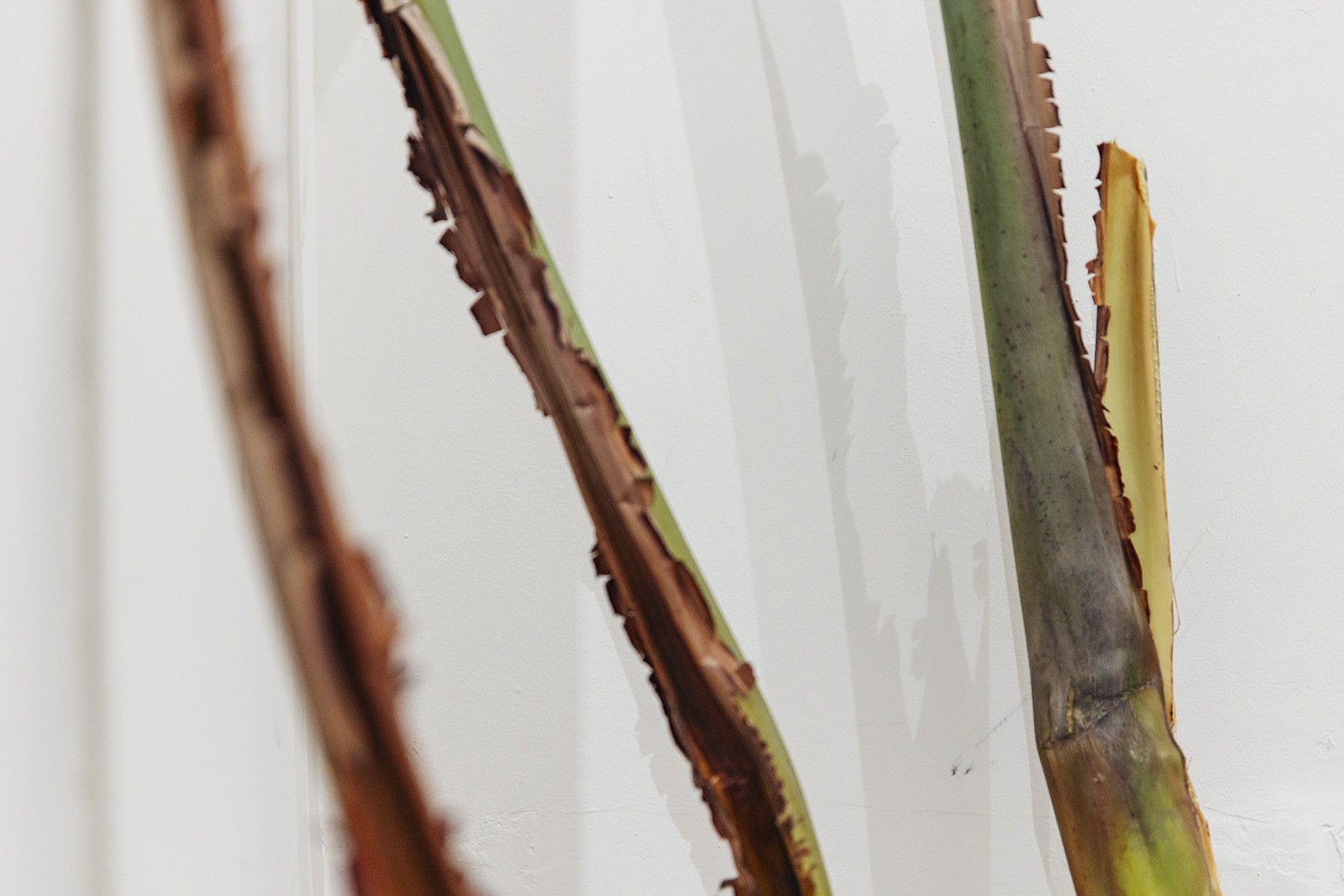The Politics of Belonging
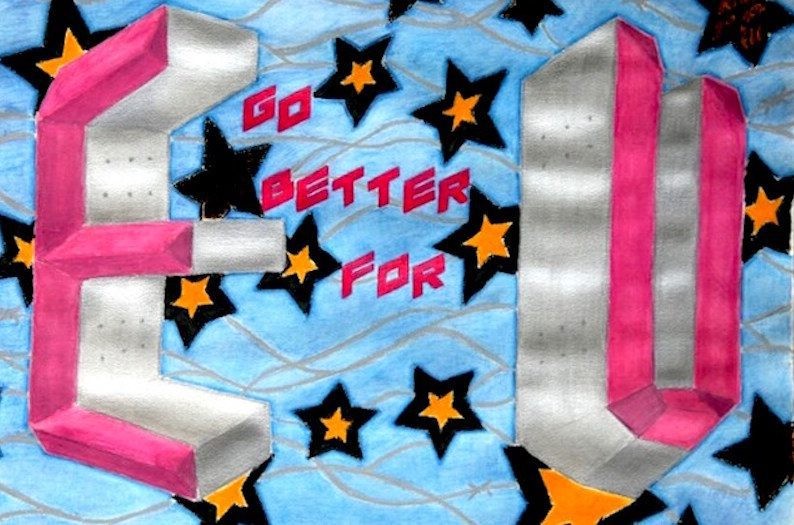
01 April 2020
Magazine C& Magazine
Words Agwu Enekwachi
5 min read
Mobility in the arts, geographical or otherwise, is often seen as almost a requirement. However, COVID-19 has put to the test this very idea and aspiration. In the series "States of Mobility" we have selected texts that probe assumptions of movement in relation to people on the African continent and beyond. Our author Agwu Enekwachi delves into the work of two artists with transnational biographies to find out how flags and anthems inspire nationalism in an increasingly interconnected world.
Last fall, on Nigeria’s national day of independence, Abuja-based artist Chinyere Odinukwe exhibited a body of work titled Sacred Cloths and Anthems at the Cube Café in Abuja. The project was inspired by the aesthetics and thought constructs around flags and anthems. It sought to grapple with the power and passion that citizens relate to these pieces of fabric and collections of words, searching for elusive meanings. “How can ‘a piece of cloth’ command so much power?” the artist asked herself. “Why is the burning of flags a feature of protests? And why do some people don colors of far flung foreign and sometimes enemy nations in international sports competitions?”
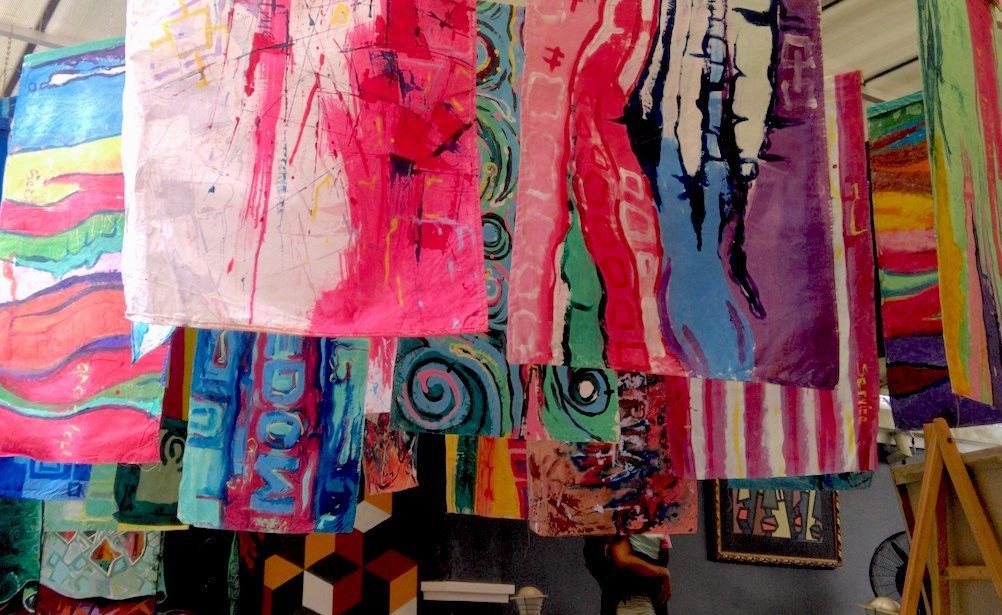
Chinyere Odinukwe, Sacred Clothes and Anthems, 2016. Courtesy the artist.
A few months later, an exhibition dealing with a similar theme opened in Abuja: La Nigritude by Numero Unoma. This time around, Unoma looked at nationalism and identity in the ordinariness of the everyday. The artist deals with her subject from the perspective of someone who has Nigerian and German roots and UK and US citizenship. Though familiar with all the above cultures – if just by virtue of citizenship rights –, her Nigerian roots are the most prominent in her work. They resonate overwhelmingly through her interest in tradition, locality, and identity, which becomes especially apparent in her elevation of street lingo.
Language is a vital ingredient in Nigeria’s cultural mix which is already being greatly explored in the country’s burgeoning hip hop culture. With a population of 180 million people and over 250 ethnic groups, Nigeria is a melting pot of cultures. English is the lingua franca, French is taught in many schools, but Pidgin English is spoken by most. One of Unoma’s main pieces in the exhibition is Bench, a ubiquitous welcome offering that is used as a seat in Nigeria. Described by the artist as “an object on which our country and continent are run,” the bench is a simple seat found in many homes, churches, factories, and public spaces. The artist had inscribed words in familiar languages and dialects on the bench and invited visitors to sit on it and pen down the word welcome in any of Nigeria’s 200 languages.
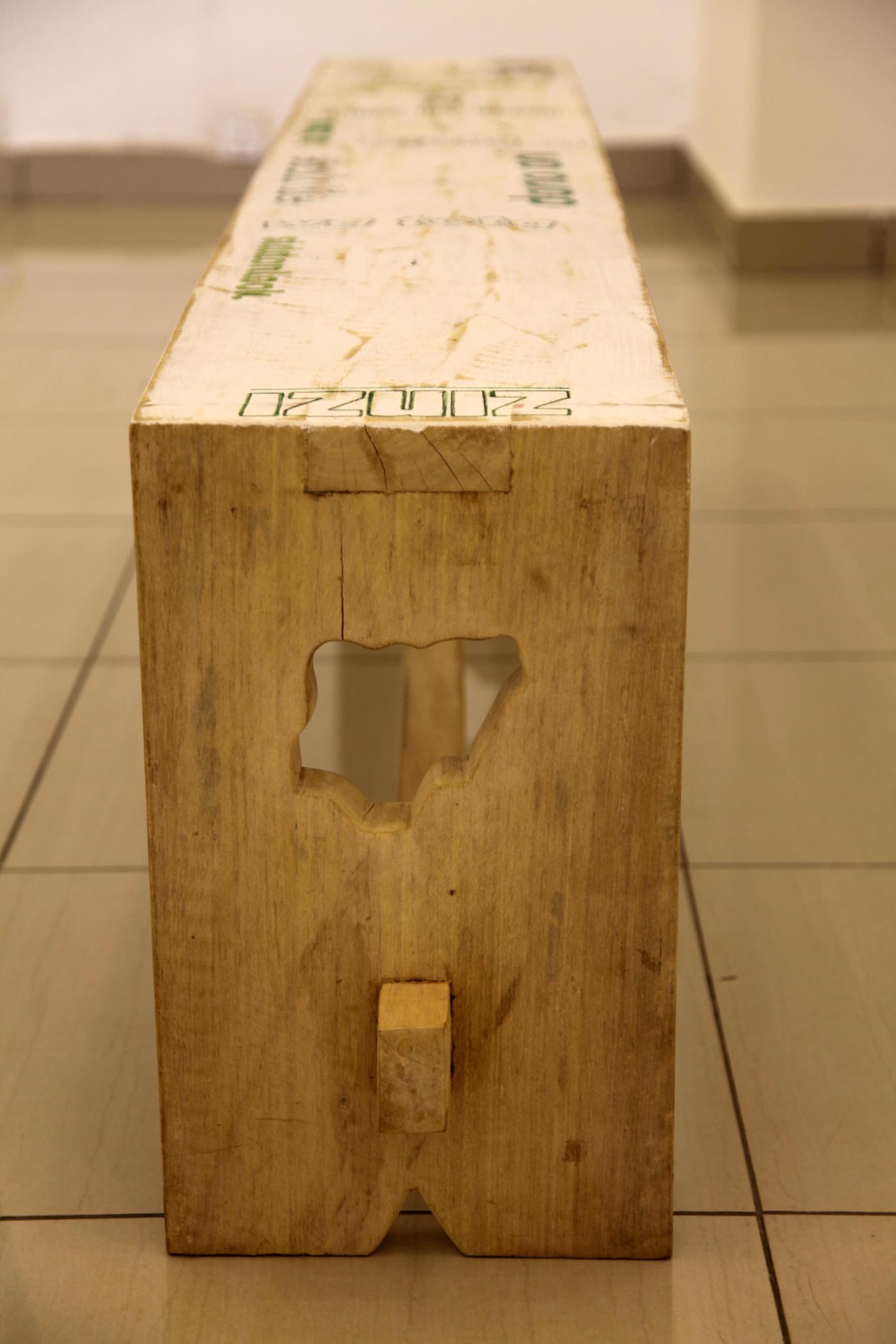
Bench by Numero Unoma, 2015. Courtesy the artist.
While exploring the diversity of Abuja metropolis, Unoma equally draws attention to increasing erosions of culture occasioned by urbanization, modernity and the colonial experience. Both Unoma’s and Chinyere Odinukwe’s exhibitions present paradoxes of diversity: the generation of novelty on one hand, and the degeneration of primal cohesion of its constituents on the other.
By interpreting the multifariousness of flags in the Nigerian experience, Chinyere Odinukwe breaks down the rigid boldness of flags into intermingling fragments of shapes and colors. She reduces the individuality and sacredness of each flag and its set of colors to a simmering sea of shades and symbols, where one could get lost in the search for an elusive identity. Flags and anthems as symbols of authority and heroism inspire nationalism, enforcing on us a commonality of values rather than a sense of existence. The centerpiece of Odunikwe’s installation is a work made of colored fabrics encrusted with fragments of mirrors, which seem to question the transience of nationalism, transferred identity, and citizenship. Where should the nexus between sentimental adoration of nations and the reality of migration be located? Why would anyone drop the green flag for the red one? Why do people renounce their national identity? These are questions that Odinukwe’s installation raises. The answers surpass anything our assumptions could possibly yield because she confronts us with deconstructed flags that symbolize various shades of belonging.
The two artists have examined tendencies suggesting that the more united the world seems, the more nationality and identity become topical issues. Nationalism in the form of flags, anthems, language, arts, objects, and crafts will be part of us as long as people continue to establish senses of identity that are countered by the image of an “other”. But how do we negotiate the borderlines of cultural codes and loyalty among people with multiple citizen allegiances? Odinukwe also cites the angst that led to Olu Oguibe rejecting his Nigerian nationality. The US-based activist, critic, and artist has continuously quarreled with the failings of his country of origin to rise above some debilitating national malaise. Many citizens like him are now faced with being constantly reminded of their “outsideness” in their otherwise beloved nations. Similarly, Odinukwe and Unoma tackle this ambivalence with the constant fusion and fission of flags, and by highlighting the ordinary objects that define the reality of our existence.
Agwu Enekwachi is a PhD student in Art History at the University of Nigeria, Nsukka. He is a Sculptor, an art teacher and culture writer living in Abuja.
Read more from
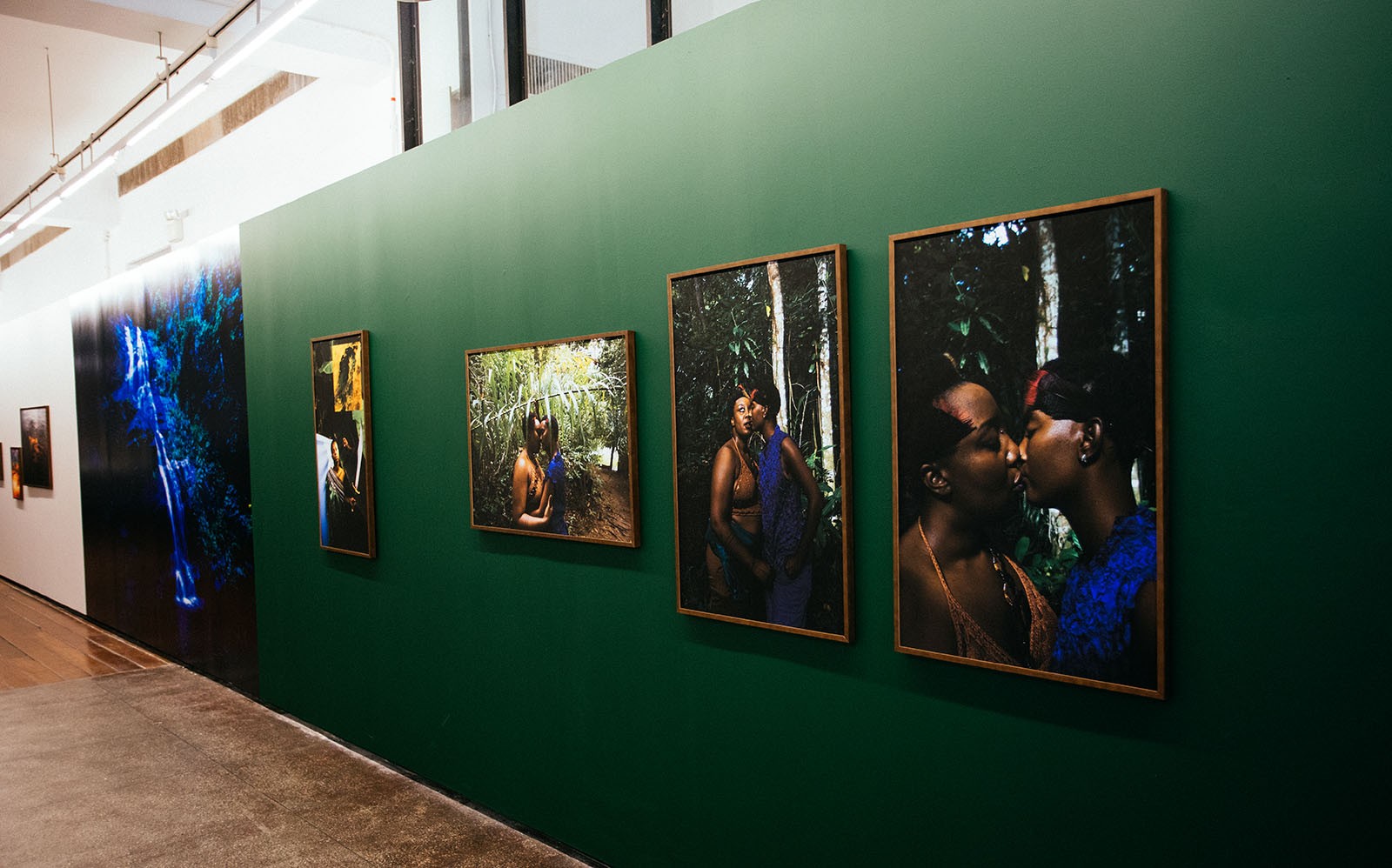
Flowing Affections: Laryssa Machada’s Sensitive Geographies
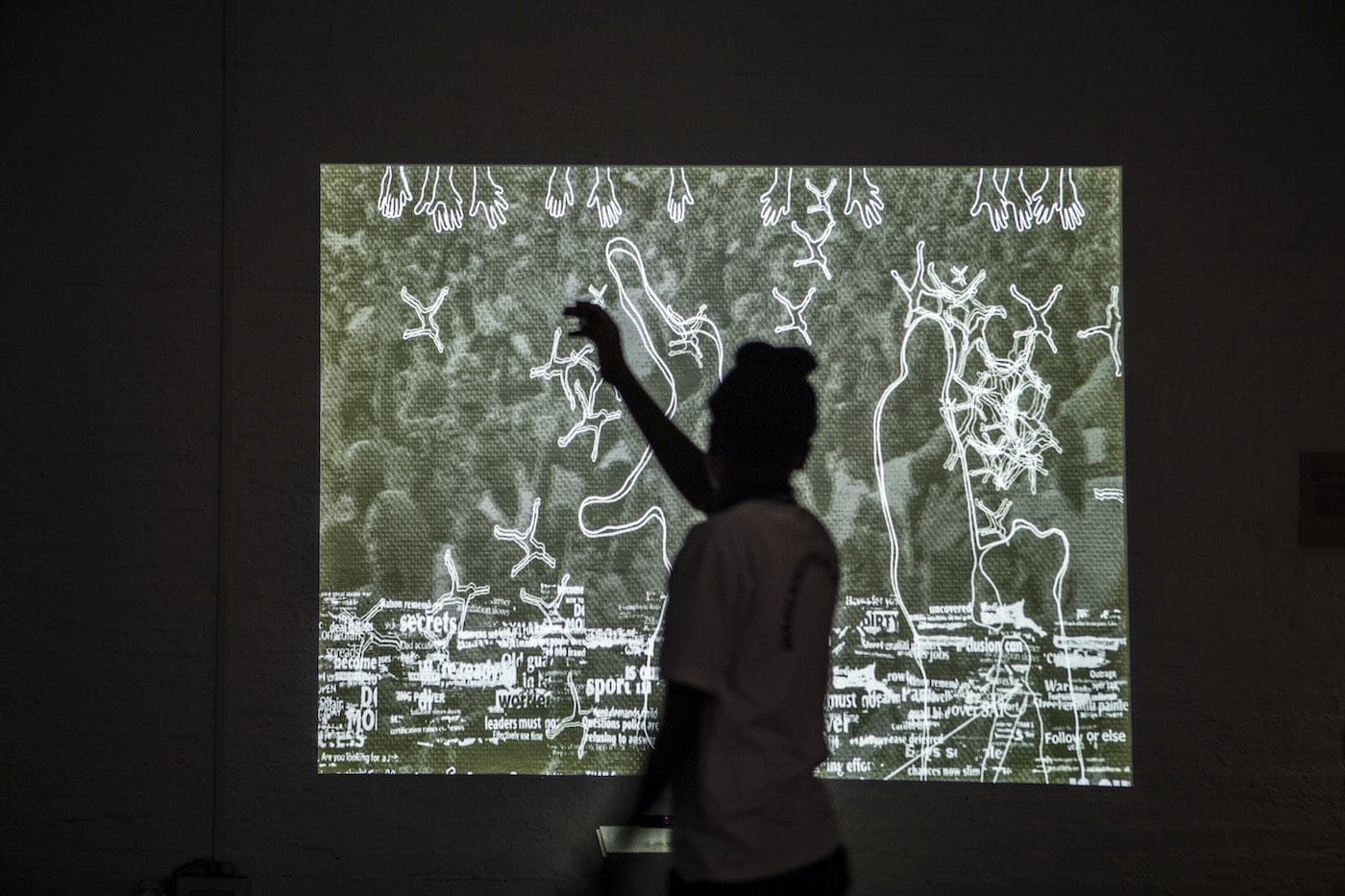
Kombo Chapfika and Uzoma Orji: What Else Can Technology Be?
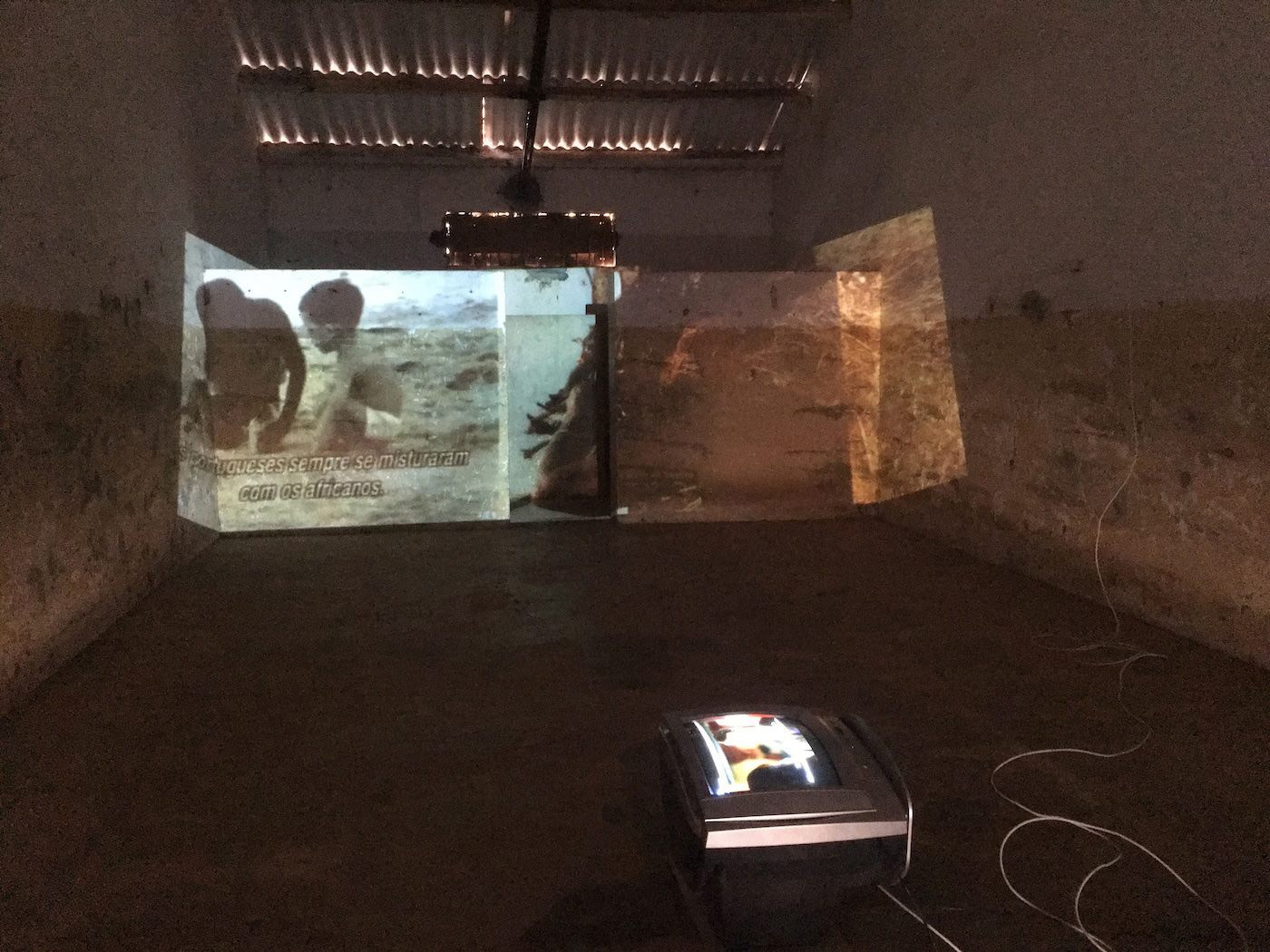
Cabo Verde’s Layered Temporalities Emerge in the Work of César Schofield Cardoso
Read more from
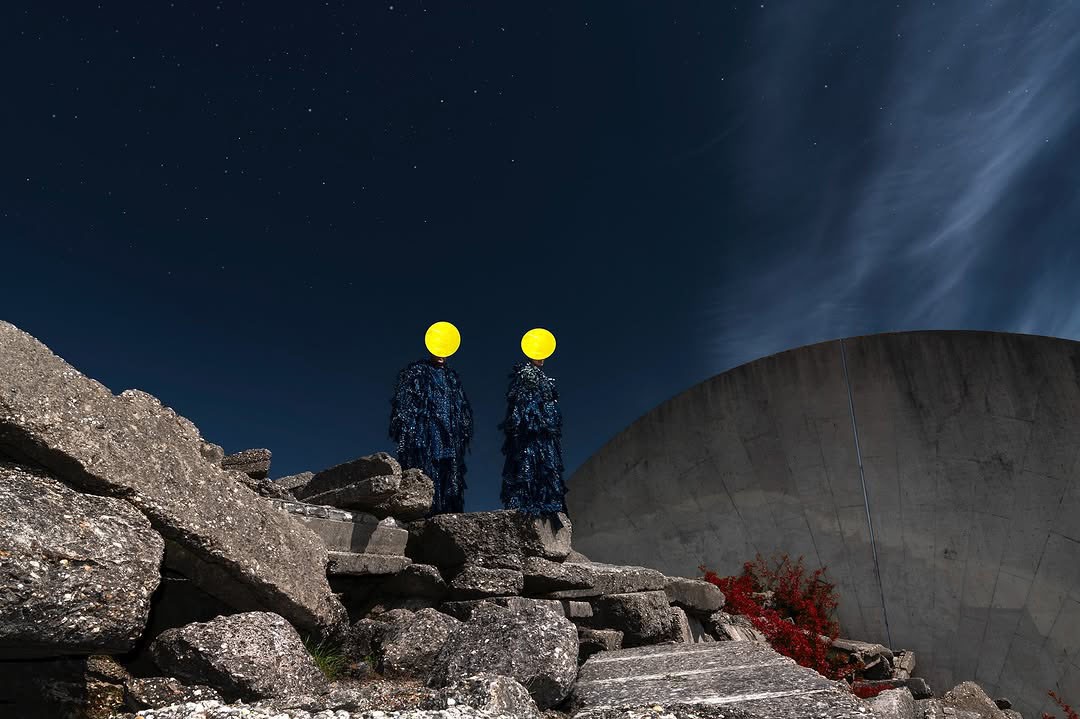
Electric Dub Station: The Return of Tomorrow
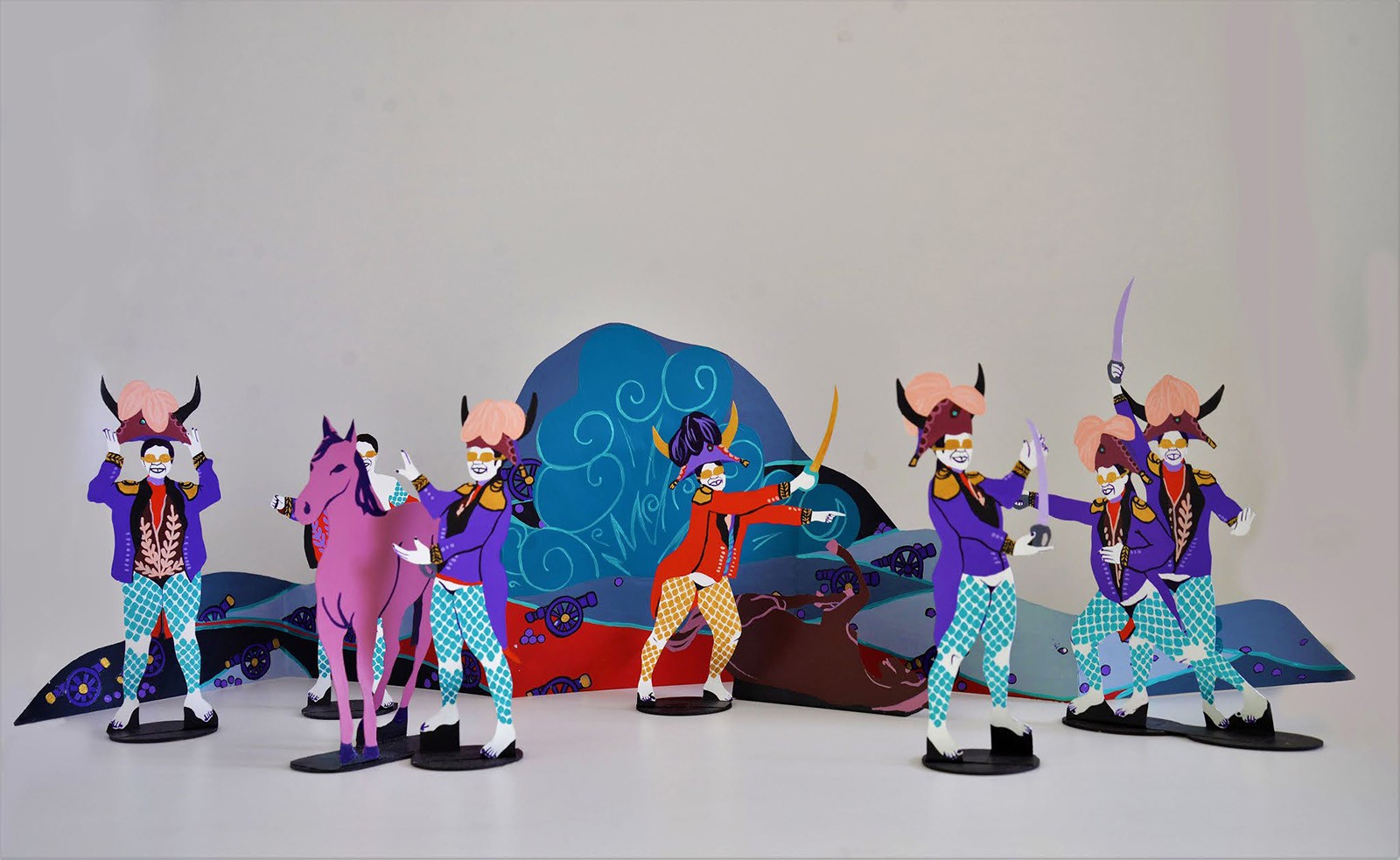
Tessa Mars Links the Migratory Experience to Haitian Spirituality
